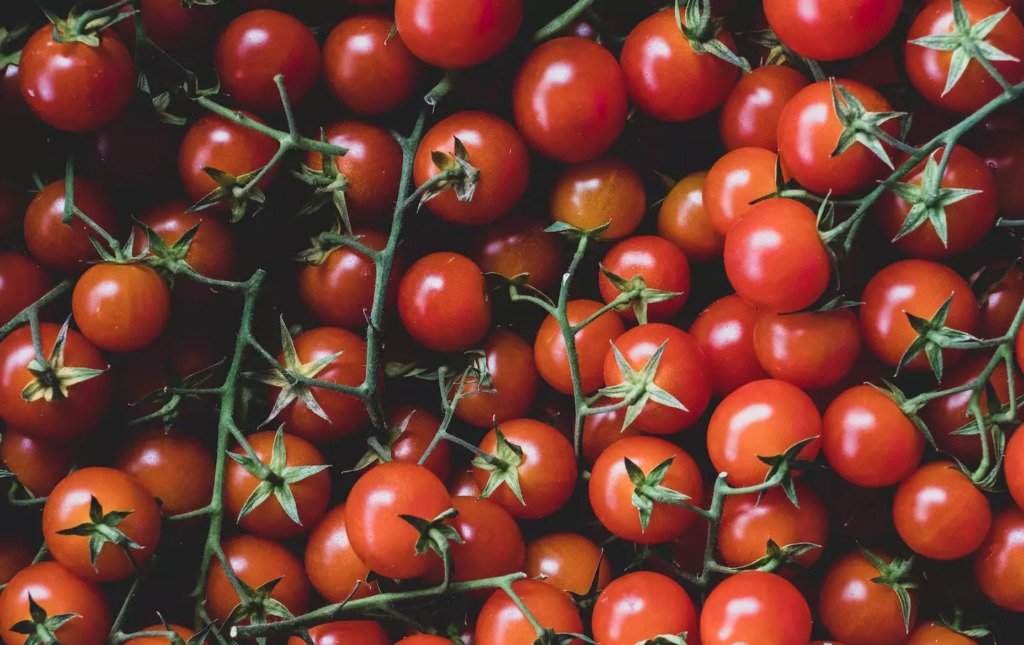People Are Only Just Realizing Some of Their Favorite Vegetables Have Nicotine in Them

In recent years, people have become increasingly health-conscious, closely monitoring their diets and the substances they consume. With concerns about the dangers of nicotine use through smoking or vaping, many individuals are now more focused on reducing their nicotine intake. But what if we told you that nicotine isn’t only present in tobacco products or e-cigarettes? Some of your favorite vegetables also contain small traces of nicotine. The idea of nicotine being found in vegetables might sound surprising, but don’t worry—this doesn’t mean you need to toss out your greens.
Nicotine is a naturally occurring chemical that can be highly addictive, which is why it’s typically linked to cigarettes. However, the nicotine levels in vegetables are incredibly low and do not pose any health risks. So, despite the occasional news headline about nicotine-related health issues, there’s no need to stop eating your vegetables just because they contain trace amounts of this chemical.
While it’s understandable to want to avoid nicotine, especially in the context of smoking and vaping, the amounts found in vegetables are so small that they won’t affect your health or cause any addiction. Therefore, the idea of getting addicted to vegetables is a non-issue, and you can safely continue to enjoy your greens without fear.
Which Vegetables Contain Nicotine?
You might be wondering exactly which vegetables contain nicotine. The answer lies in the plant family known as Solanaceae, or nightshades. This plant family includes several vegetables that have trace amounts of nicotine. While this fact may sound unsettling at first, it’s important to understand that the nicotine concentration in these vegetables is extremely low—nowhere near the levels found in tobacco products.

Here’s a breakdown of some common vegetables that contain nicotine:
- Tomatoes: These are one of the most common vegetables in the nightshade family, and they contain approximately 7.1 µg of nicotine per gram. Interestingly, as tomatoes ripen, the nicotine concentration decreases.
- Green Peppers: Green peppers have nicotine levels ranging from 7.7 to 9.2 µg per gram. Although they contain a bit more nicotine than tomatoes, it’s still a negligible amount.
- Potatoes: While potatoes might not come to mind when thinking of nicotine-containing foods, they do contain about 15 µg per gram of nicotine. However, if you eat mashed potatoes or consume green potatoes, the nicotine concentration could rise to 42-52 µg per gram, especially when the potatoes are not fully ripe.
- Cauliflower: Though cauliflower isn’t a member of the nightshade family, it still contains nicotine, with about 16.8 µg per gram. Despite this, the nicotine levels in cauliflower are still very low.
- Eggplant: Of all the vegetables mentioned, eggplant has the highest nicotine content, with around 100 µg per gram. However, even this is still far less than the nicotine found in cigarettes.
It’s essential to note that while these vegetables contain trace amounts of nicotine, they have so little of it that you would need to consume an enormous amount to come close to the nicotine content of a single cigarette.
How Much Nicotine Is In These Vegetables?
To put the nicotine content of these vegetables into perspective, let’s break it down further. While it’s true that some vegetables have nicotine in them, the actual amount is incredibly small. For example:
- Tomatoes contain only 7.1 µg of nicotine per gram. You’d need to consume a huge quantity of tomatoes before the nicotine levels would even become significant.
- Green peppers contain nicotine ranging between 7.7 to 9.2 µg per gram. This small amount is unlikely to have any impact on your health, especially when compared to the nicotine in cigarettes.
- Potatoes are the most surprising entry on this list, with 15 µg per gram of nicotine on average. If you eat green potatoes or mashed potatoes, the nicotine concentration could rise to 42-52 µg per gram, though again, it’s still much less than what you’d find in a cigarette.
- Cauliflower, which isn’t even part of the nightshade family, contains around 16.8 µg per gram of nicotine, which is still considered a trace amount.
- Eggplants have the highest nicotine concentration on the list, with 100 µg per gram. However, even eggplants would require you to eat an enormous quantity to reach the nicotine content of just one cigarette.
So, while it’s intriguing that some vegetables contain nicotine, the reality is that the amounts are so low that they have virtually no effect on your health. Even the highest concentration in eggplants is far less than what you’d find in a tobacco product.

What Happens When You Eat These Vegetables?
With the knowledge that some vegetables contain nicotine, you may wonder: what happens to this trace amount of nicotine when you eat it? The good news is that the nicotine in vegetables is in such low quantities that it doesn’t have the same effect on your body as nicotine from tobacco products.
When you consume vegetables that contain nicotine, the tiny amounts simply pass through your digestive system without causing any issues. According to experts, the nicotine is digested in your intestines and doesn’t have any addictive effects or impact on your health. It’s quickly broken down and absorbed into your body in a harmless way.
So, while it’s fascinating to learn that vegetables contain nicotine, it’s important to understand that the levels are so insignificant that they won’t cause harm. Your body easily processes these small quantities, and they don’t accumulate or affect your health in any meaningful way.
Should You Stop Eating These Vegetables?
If you’re concerned about the nicotine content in vegetables, you can rest assured that there’s no need to stop eating them. The nicotine levels found in these vegetables are so low that they pose no health risk. In fact, you’d need to consume incredibly large quantities to even come close to the nicotine content of a single cigarette.
For example, 10 kg of eggplant would be required to match the nicotine levels of one cigarette. This just goes to show how minuscule the nicotine content in vegetables really is. So, there’s no reason to avoid these healthy, nutritious foods over the fear of nicotine.

How Do Fans Feel About This Discovery?
When news of nicotine in vegetables first broke, many people were both surprised and amused. A Reddit user shared this discovery in the thread r/todayilearned, sparking a flood of comments and jokes. Some users found the idea of smoking potatoes particularly funny, with one user quipping, “I hope my family doesn’t find out—they’ll start trying to smoke potatoes since cigarettes are so expensive now.”
Other users made light of the situation, saying things like, “That’s why I’m sticking to eating fries. More nicotine, more energy!” But amid the jokes, many users reminded each other that the nicotine levels in vegetables are incredibly small and unlikely to have any noticeable effects.
One user pointed out, “And before people go crazy over this, there’s literally a ton more nicotine in tobacco products.” This comment highlighted the fact that, despite the presence of nicotine in vegetables, the levels are so low that they don’t even come close to the nicotine found in tobacco.
The Bottom Line: Don’t Worry About Nicotine in Your Veggies
To summarize, while it’s true that some vegetables contain trace amounts of nicotine, the levels are so low that they pose no risk to your health. You’d need to consume massive amounts of these vegetables to even come close to the nicotine content of a single cigarette. The nicotine in these foods is simply processed by your body without any harmful effects. So, there’s no reason to avoid your five-a-day or become concerned about the nicotine content in your veggies.
Keep enjoying your tomatoes, potatoes, and eggplants without worry. They remain a healthy and nutritious part of your diet—nicotine trace amounts aside.
Featured Image Credit: Getty Stock Images






